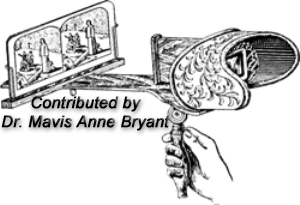|
Gilbert W.
Pasco Source: O'Beirne, Harry F., and
E. S.
O'Beirne. The Indian Territory: Its
Chiefs, Legislators and Leading Men (St. Louis, MO: C. B.
Woodward Company,
1892), pp. 175–177. The subject of this
sketch was born in Fon du Lac, Wisconsin, April 20,
1848, and is the son of Cyrus
W. Pasco and Marilla,
daughter of William Dilts,
of Ohio. Gilbert was educated at Fon du Lac, graduating at the High
School, and
commenced reading law with Charles
Eldridge, of the same place. He finished his
legal education under J.
L. Lowe, of Washington, Kansas, after which he was
elected County Clerk of Washington, Kansas, which office he held for
four
years. After practicing two
years in that town, he moved to Sherman, Texas, in 1878 and there
remained until 1888, when he went to Dallas. Here he practiced until
1890,
when, owing to ill-health, he was forced to move to the Indian
Territory. The United States
Court being opened at Muskogee, Mr.
Pasco moved his
family to that town, where he soon began to enjoy a lucrative practice.
He is
at present associated in business with Mr. W. M. Harrison,
also a prominent
lawyer. Mr. Pasco
married Miss Eunice
M. Walker, daughter of C. W. Walker,
of
Worcester, Mass., by whom he has one boy, named Ben, aged eight
years. Although the subject
of this sketch possesses the elements necessary for
the qualification of a grand criminal lawyer, yet he has bestowed his
attention
almost wholly to civil law, making a specialty of real estate and
commercial
cases. He has been successful in some of the largest legal transactions
in the Southwest,
involving thousands of acres of land. His cases involving real estate
practice
extended over the counties of Lamar, Fannin, Dallas, Denton, Hunt,
Grayson,
Collin and Clay, Texas. During the
war, Mr. Pasco
served in the Federal Army under Colonel C. C.
Washburne in the early part of the campaign, and later on
joined Custer's
expedition in pursuit of Kirby
Smith. G.
W. Pasco is a tall, well-built man,
possessing a remarkably handsome face, as well as a good cheerful
countenance.
His magnetism is above average, but he is modesty personified, and from
lack of
appreciation of his own personal merits, is relegated to a seat with
his
professional contemporaries, instead of being at the head of the bar,
or
somewhere in its vicinity. He is, however, a young man, and has time to
achieve
a great deal before his prime of life has passed.
 Biographical Sketches from the Indian Territory |
